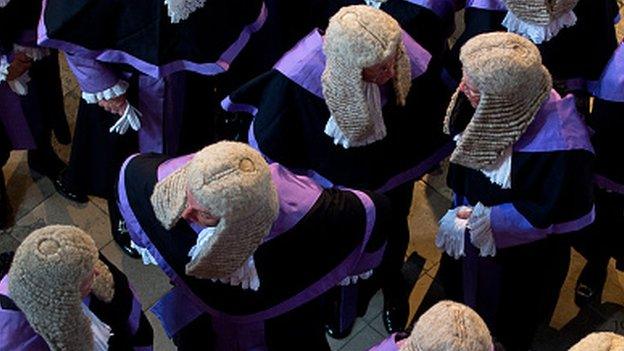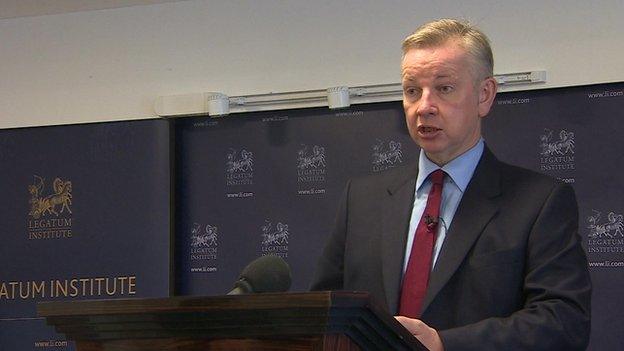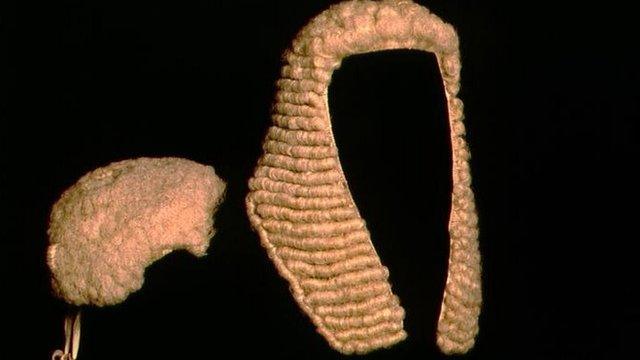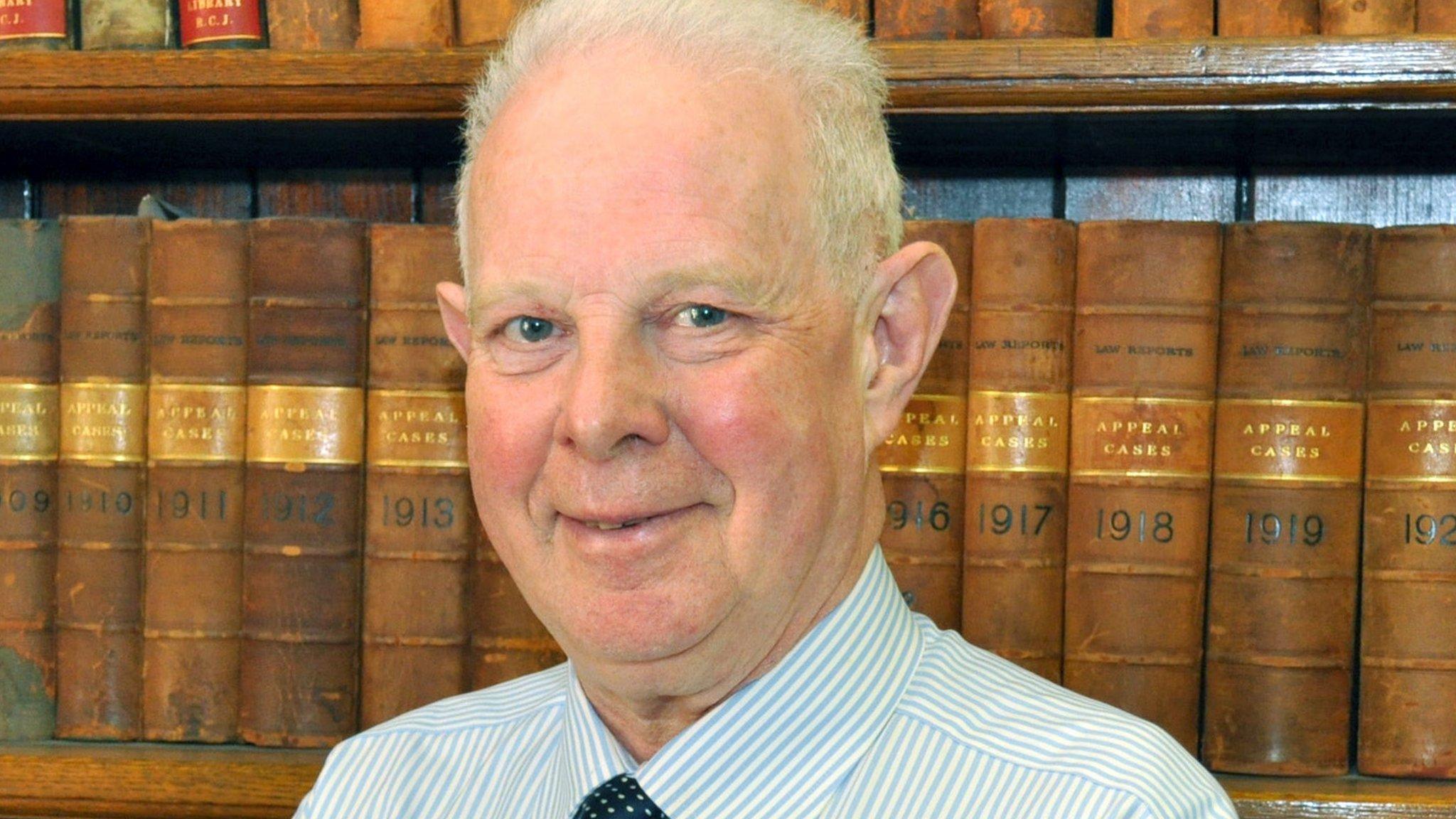Machinery of justice faces profound change
- Published

There are concerns about low morale among the judiciary
The lord chief justice of England and Wales is taking steps to improve judicial morale after reporting concerns among his fellow judges that their work was not valued or appreciated.
In his annual report, external, Lord Thomas said much needed to be done to address changes that would follow from far-reaching reforms now being planned.
"Although judges recognise that they are well-paid in comparison to most people, static pay (in real terms, reduced pay) and adverse alterations to pension arrangements (particularly for more recently appointed judges) have had a significant impact," he said.
"In addition, there has, overall, been a widespread feeling of not being valued or appreciated for their work."
Planned assistance includes:
counselling support
an occupational health provider
a 24-hour helpline
greater resources for leadership judges
Lord Thomas confirmed the Treasury had allocated £738m for modernising the courts and tribunals of England and Wales, with some of the money being raised from the sale of court buildings.
Past failure to invest meant that many courts lacked modern means of communication, he said.
"Outdated IT [information technology] systems severely impede the delivery of justice," he said.
IT was the central element in changes now being planned or piloted, the head of the judiciary said, though there would also be changes to court structures and procedures.
Courts were still using computer programs designed in the 1980s or 1990s "precariously supported by outdated operating systems", he said.
Online court
Lord Thomas had high praise for a report, external he had recently received from Lord Justice Briggs, the deputy head of civil justice, calling for the creation of an online court to decide cases worth up to £25,000.
Lord Justice Briggs said the central assumption of his review of the civil courts was that it was "now technically possible to free the courts from the constraints of storing, transmitting and communicating information on paper".

Lord Thomas admits the current system needs fundamental reform
The challenge was to design a paperless court while recognising there would have to be a "substantial, difficult and probably painful transitional period before that revolutionary change is fully achieved", he said.
It required both a "willing suspension of disbelief" and an "informed imagination about the contours of a brave new paperless world for which there are few, if any, precedents", he said.
To show what could be done, he had conducted his entire six-month review without receiving or generating a single piece of paper - despite being a "two-finger typist", he said.
The new court would not decide all its cases online, Lord Justice Briggs said.

Proposed changes to the legal system:
courts to be closed and buildings shared
judges to be redeployed so cases can be heard at the appropriate level
radical improvements in IT to allow electronic filing and document storage
online lawyerless court for small claims
case officers to take over routine work from judges
improved methods of enforcing judgments

A judge might conduct some hearings on the telephone, by video conference or even face-to-face.
But it would be the first mainstream court in England and Wales designed to be used, from start to finish, without lawyers.
At least in its early development, it would deal only with money claims, Lord Justice Briggs said.
New software would guide litigants on how to formulate their claims and show them how to scan the relevant supporting documents using their smartphones, he said.
Next, a case officer would deal with conciliation and case management.
Finally, a district judge would decide the case - with a face-to-face trial being regarded as a last resort.
Claimants and defendants could still consult lawyers if they could afford them - but the online court would eventually become compulsory for low-level claims.
Rising pressures
Lord Thomas recognised in his annual report that the justice system "has become unaffordable to most".
As a result, he said, "there has been a considerable increase in litigants-in-person for whom our current court system is not really designed".

Video-conferencing technology could be used to make the justice system more accessible
The change programme - which, for the first time, is being driven by the judges themselves - would allow these and other issues to be tackled, the lord chief justice said.
But he was well aware of the strain this would put on the judiciary and support staff at a time when resources had been reduced.
As well as an increase in litigants without lawyers, the judges were "having to handle an ever-increasing quantity of challenging and emotionally charged cases in family and crime", he said.
Even so, "much remains to be achieved in order to improve morale and to ensure that the inevitable changes which will occur during the reform programme are sympathetically addressed".
Few people outside the courts have yet grasped the scale of the changes that are now to take place in the courts of England and Wales.
These are certainly the biggest changes to the machinery of justice since the 19th Century - if not before - and the judges regard them as essential if the courts are to continue to do more work with fewer resources.
- Published23 June 2015

- Published23 January 2015

- Published1 October 2013
